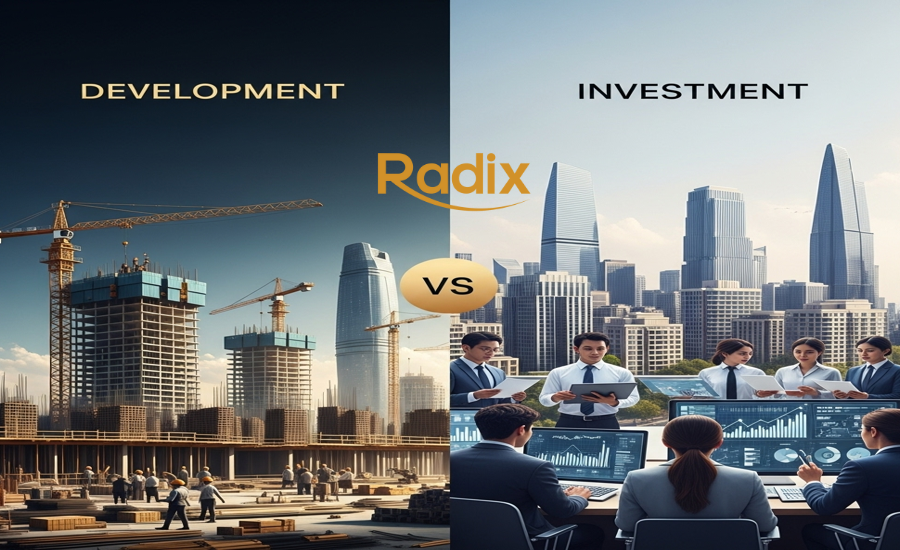Real Estate Development vs. Investment
The real estate sector is witnessing significant growth globally and locally due to expansive development plans aligned with overall economic progress. Within this sector, real estate development and real estate investment play vital roles. Though both operate in the same field, they serve different purposes and involve unique processes. Understanding their differences can help individuals and organizations choose the right direction. What is the difference between Real Estate Development vs. Investment ?.
Two Different Paths While both are part of the real estate lifecycle, development and investment differ in scope, strategy, and objectives. Recognizing these distinctions is essential for making informed real estate decisions.
What Is Real Estate Development?
Real estate development is a comprehensive process that includes several stages: feasibility studies, land acquisition, design, construction, and sales or leasing. Developers oversee the entire lifecycle of a property, from concept to final delivery.
What Is Real Estate Investment?
Real estate investment focuses on buying, selling, or leasing properties to generate income. It’s a long-term financial strategy, typically involving less operational oversight than development. Investors may work individually or within groups.
Different Goals and Purposes
The key difference lies in the main objective:
-
Development aims to create and build real estate assets.
-
Investment seeks to generate income from existing properties.
Key Tasks of a Developer
A real estate developer must manage multiple responsibilities to bring a project to life:
-
Market Analysis: Understand demand, expected revenue, costs, and risks.
-
Execution Planning: Define architectural, structural, and operational needs.
-
Legal Compliance: Obtain permits and follow all local regulations.
-
Project Supervision: Coordinate engineers, contractors, and schedules.
-
Quality & Budget Control: Monitor standards, timelines, and financials.
-
Marketing Strategy: Launch targeted campaigns to reach ideal buyers.
-
Post-Delivery Management: Operate and maintain the property after handover.
Key Tasks of an Investor
Investors need strong market insight and planning to make smart real estate decisions:
-
Market Research: Analyze supply, demand, pricing, and project data.
-
Asset Selection: Choose the best property type to match investor goals.
-
Valuation: Evaluate property worth to align with financial strategies.
-
Marketing and Outreach: Promote listings through ads and digital platforms.
